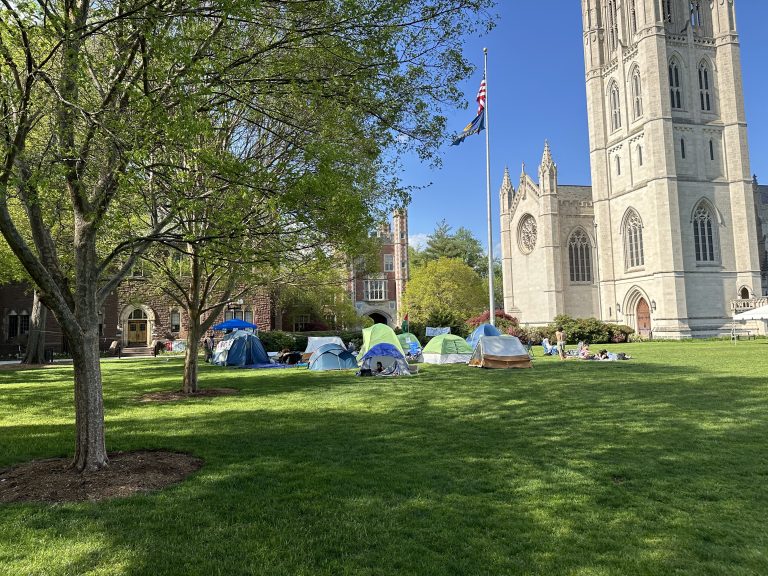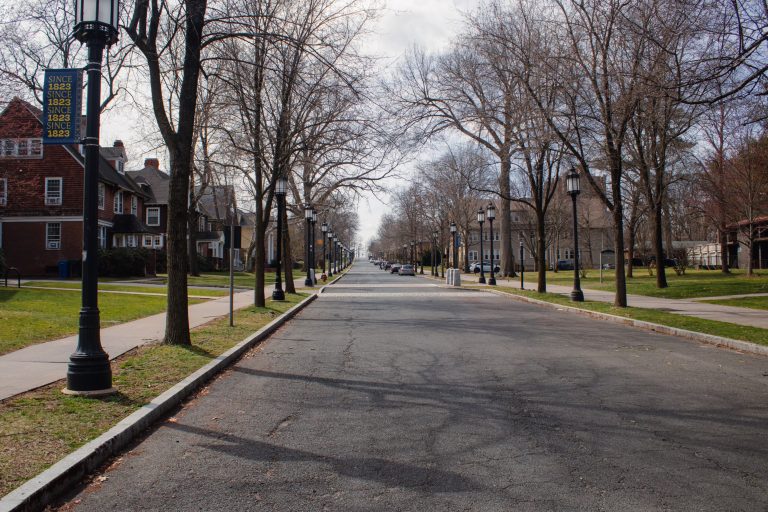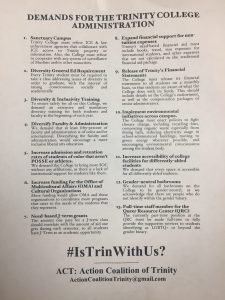Trinity has ended its partnership with QuestBridge, a nonprofit dedicated to connecting low-income students to institutions of higher education, according to staff from Trinity’s Office of Admissions. The decision was made for reasons of financial expediency; in the words of Angel Perez, Trinity’s Vice President for Enrollment and Student Success, Trinity “[was] spending an insane amount of money” relative to the number of QuestBridge students who ultimately matriculated to Trinity. Vice President Perez believes that the reallocation of resources previously used for Trinity’s partnership with QuestBridge will allow the College to “cast a wider net” in terms of admissions, ultimately furthering its goal of broadening Trinity’s demography.
According to it website, QuestBridge “is a powerful platform that connects the nation’s brightest students from low-income backgrounds with leading institutions of higher education and further opportunities.” QuestBridge is a different kind of college application, distinct from the Common Application. The program refers qualified low-income students to colleges that may be able to provide need and merit-based financial aid.
Trinity’s relationship with QuestBridge goes back more than a decade to 2004; Trinity was in fact one of QuestBridge’s founding partner schools. Involvement in QuestBridge requires payment; Trinity’s partnership cost $100,000 annually, in addition to Admissions staff’s travel expenses to QuestBridge events and trainings.
Perez determined that QuestBridge, though in his estimation a valuable program, was not the most effective avenue for admissions’ money. By leaving QuestBridge, Perez believes that Trinity’s admissions office will “be able to partner with more QuestBridge-like organizations” around the country, netting significantly more applicants.
The decision to leave QuestBridge was made amongst the admissions office staff and Trinity’s administration. Over the summer, a proposal was submitted and discussed at meetings involving Perez, members of the admissions office, members of the financial aid committee, Alison Draper, Trinity’s Director of the Center for Interdisciplinary Science, a Lecturer of Environmental Science, and the QuestBridge Liaison, in addition to President Berger-Sweeney. Current QuestBridge Scholars attending Trinity were informed of the decision later in the summer.
The decision to withdraw from QuestBridge will have no impact on the financial aid status of current QuestBridge scholars at Trinity.
Perez explained that one of his foremost concerns was “how the students [involved in QuestBridge] are going to feel,” stating that “I wanted to make sure that our students felt supported.”
According to Perez, current QuestBridge scholars were disappointed to see Trinity withdraw from the program, but expressed strong interest in engaging with the new “QuestBridge-like” students. Drew Mickolas ’17, a QuestBridge Scholar at Trinity, reflected these sentiments. “Without groups like the QuestBridge chapter,” said Mickolas, “many students would feel isolated from the campus community.” In addition to providing scholarship opportunities, QuestBridge has served as a rallying point both for its scholars and other low-income or first-generation students at Trinity. According to Mickolas, “we provide mentoring for first-year QuestBridge students who do not have the cultural insight or resources to know how to best succeed in college without some student guidance. The group also holds events for academic advisement, career planning, mental health, and similar topics.”
The decision to leave QuestBridge has not proven universally popular among the Trinity community. In a Facebook group entitled “Alumni for a Better Trinity College,” alum Erin Poskocil noted the decision, reflecting that she was “very disappointed” and “dismayed” by Trinity’s departure. Several alumni posted comments echoing this sentiment.
While expressing that he was “sad” to see Trinity’s involvement with the program end, Mickolas reflected that he “[had] a lot of hope that the admissions office will work to replace it with something even more substantive for low-income, high-achieving students.” Mickolas explained that Trinity’s withdrawal from QuestBridge has inspired QuestBridge scholars and others “to form an organization for low-income students as a whole at Trinity” with help from Trinity’s administration.
Trinity Announces End of QuestBridge Program Partnership











+ There are no comments
Add yours